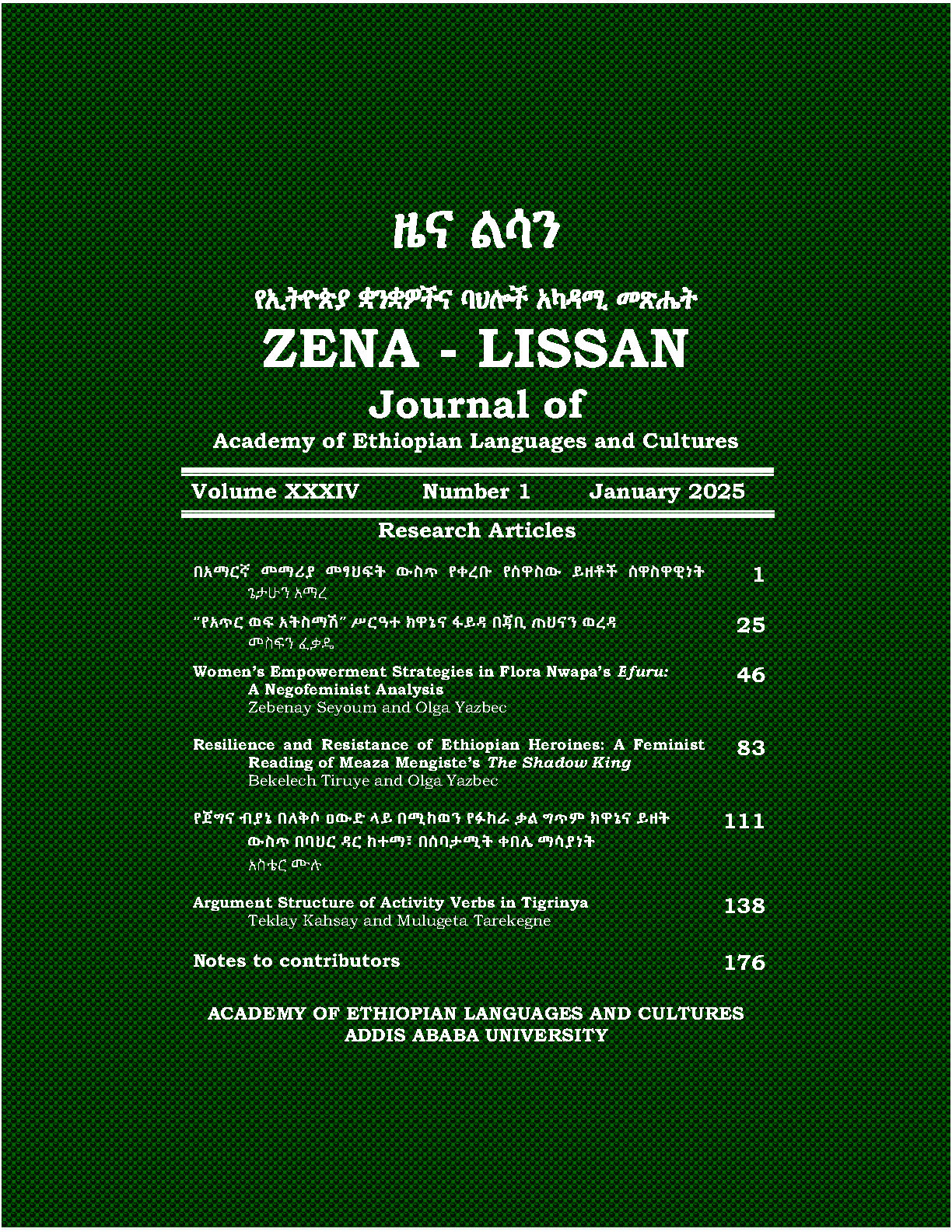Women’s Empowerment Strategies in Flora Nwapa’s Efuru: A Negofeminist Analysis
Keywords:
Keywords: [Women’s empowerment strategies, Efuru, African women, nego-feminism]Abstract
This study examines women empowerment as portrayed in Flora Nwapa’s novel, Efuru (1966). It particularly explores the empowerment strategies female characters use to empower themselves in the selected novel. The study adopted Obioma Nnaemeka’s Nego-feminist theory as a theoretical lens to analyze the novel. A close reading of the novel was then conducted to select extracts that elucidate how the female characters use nego-feminist empowerment strategies to negotiate with patriarchy and bring about gender equality. Based on the analysis of the novel, the study reveals that cooperation, negotiation, compromise, and chameleon imagery are identified as strategies characters use to empower themselves. The study also illustrates how female characters join hands with men to challenge patriarchy, often through finding the third space. The female protagonist, Efuru, forms a core of resistance against male-dominated ideology by cooperating, negotiating, compromising, and building her agency with her husband, which all bring her success while patriarchal values melt away. Finally, challenging Western feminism and adapting nego-feminism to the African context, this study promotes African indigenous feminist cultural values that can foster gender equality based on cooperation, negotiation, solidarity, and shared principles.

